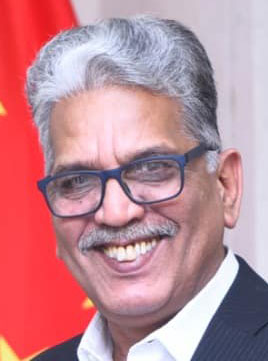In a highly debated move, Gen. Michael Erik Kurilla, commander of US Central Command (CENTCOM), has arrived in the Middle East to finalize US and Israeli preparations for potential Iranian retaliation following the recent killings of senior Hamas and Hezbollah leaders. Reports suggest that Iran could strike Israel at any moment this week, adding to the region’s escalating tension.
Background of the Crisis
The immediate cause of the current tensions is the assassination of senior Hamas and Hezbollah leaders. These high-profile figures were eliminated in recent operations attributed to Israel, particularly in Beirut and Tehran. The assassination of Hamas political leader Ismail Haniyeh in Tehran has significantly exacerbated the situation. These actions have not only heightened regional tensions but also put US and Israeli forces on high alert for potential Iranian reprisals.
US Military Buildup
Instead of fostering stability, the United States is significantly increasing its military presence in the Middle East. The Pentagon has announced the deployment of additional warships and fighter jets to bolster defenses and ensure readiness. Critics view this buildup as a clear indication of the US taking sides rather than working toward a peaceful resolution. The White House has also expressed its readiness to deploy extra resources to protect itself and its allies if necessary. However, this approach raises concerns about the US’s impartiality, suggesting a greater focus on military solutions rather than diplomatic ones.
Diplomatic Efforts and High-Level Talks
Alongside the military preparations, diplomatic efforts are underway, though their effectiveness is questionable. President Joe Biden and Israeli Prime Minister Benjamin Netanyahu recently held a phone conversation aimed at preventing the escalation of the situation into a broader regional conflict. Critics argue that these talks are more about solidifying an alliance rather than seeking a balanced approach to the crisis.
The Biden administration anticipates Iranian retaliation within days for the assassination of Ismail Haniyeh and is preparing to counter the expected attack. This preemptive stance, however, may further inflame rather than de-escalate the situation.
Gen. Kurilla’s Mission
Gen. Kurilla’s visit to the region is multifaceted. He will travel to various Gulf countries, Israel, and Jordan to seek support and ensure a unified response to the impending threat. The US hopes for significant contributions from these nations, similar to the support provided during a similar incident in April. Although Kurilla’s mission is presented as a peacekeeping effort, many view it as reinforcing a military alliance rather than fostering genuine dialogue and reconciliation. His meetings with regional leaders are expected to focus on intelligence sharing, joint defense initiatives, and coordination of military assets, further entrenching the US position in the conflict.
Regional Implications
The potential for an Iranian attack on Israel has significant regional implications. Such an action could trigger a broader conflict involving multiple actors across the Middle East. Countries in the Gulf region, already cautious of Iran’s regional ambitions, are likely to play a crucial role in any collective response.
Israel is preparing for various scenarios, with the Israeli Defense Forces (IDF) on high alert and civil defense measures being reinforced. The country is bracing for potential missile attacks and other forms of Iranian aggression. Jordan, a key US ally, is also expected to play a critical role. The stability of Jordan is crucial for maintaining regional balance, and any spillover from a conflict could have severe repercussions.
The Role of the International Community
The international community is closely monitoring the situation. The United Nations and various global powers are calling for restraint and urging all parties to avoid actions that could lead to a wider conflict. Diplomatic channels are being utilized to de-escalate the situation, though the effectiveness of these efforts remains uncertain. European nations, in particular, are concerned about the potential disruption in the Middle East due to their economic and security interests in the region. They are likely to support US and Israeli efforts while advocating for a diplomatic resolution to the crisis.
Conclusion
As Gen. Michael Erik Kurilla undertakes his crucial mission in the Middle East, the region stands on the brink of a potentially devastating conflict. The US and its allies are preparing for the worst, even as diplomatic efforts continue to prevent escalation. The coming days will be critical in determining whether the current tensions can be defused or if the region will be plunged into a new round of violence.
The situation highlights the volatile nature of Middle Eastern geopolitics and the ever-present risk of conflict. It also underscores the importance of strong alliances and coordinated responses in addressing threats and maintaining regional stability. The world watches with bated breath, hoping for a resolution that will avert a broader conflict and bring a measure of peace to this troubled region.
Sign in
Welcome! Log into your account
Forgot your password? Get help
Password recovery
Recover your password
A password will be e-mailed to you.





